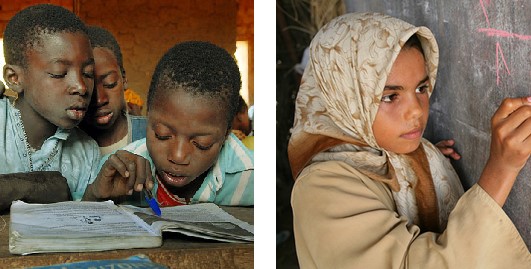WI-HER to Provide Technical Assistance to URC-Managed Global Early Grade Reading Project
Press Release on January 22, 2014
The US Agency for International Development (USAID) has selected URC to manage a global early grade reading project to support Goal One of USAID’s Education Strategy 2011–2015: improving the reading skills of 100 million primary school children by 2015. The new five-year, $10 million project will support the development of a Primary Grade Reading Community of Practice (COP), the implementation of a research agenda, and the piloting of innovations to improve and promote the effectiveness and sustainability of early grade reading interventions at scale. WI-HER will provide support to the project and will work with the COP to address gender issues in education throughout the project.
The Link between Early Grade Reading and Gender Equality
In the past decade, primary school enrollment has increased significantly worldwide, particularly in low-income countries, and the global gap in universal primary education for girls and boys has narrowed in recent years. The global enrolment ratio of girls to boys has reached parity, and girls now represent 53% of out-of-school children. Girls are still largely underrepresented in certain regions, like in Western Asia and Northern Africa where girls account for 65% and 79% of out-of-school children. respectively. Girls are less likely than boys to begin school, yet once in school, girls tend to outperform boys. In most countries, data show that boys are more likely to repeat grades and leave school early compared to girls.
Understanding the gender issues that influence these gaps in enrollment and retention is critical to improving early grade reading. By evaluating gender-related barriers that affect boys’ and girls’ access, attendance, and attainment in school, it is necessary to propose interventions or modifications to existing interventions to overcome these barriers in order to increase opportunities for boys and girls to receive a high quality education. WI-HER’s approach to gender integration utilizes culturally sensitive, innovative models and recognizes that myriad factors at multiple levels of society affect gender norms and must be addressed in concert to generate shifts in thinking. We address gender roles and relations at multiple levels and consider the varied contextual factors that drive outcomes for men and women, boys and girls.
For more information, read the entire project award announcement on University Research Co.’s website.
